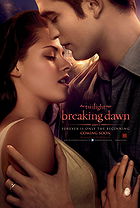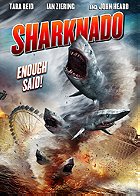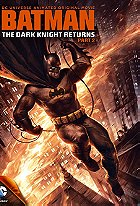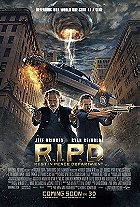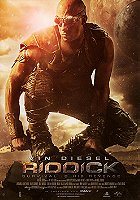It's one thing to create a sequel to an unremarkable blockbuster like The Fast and the Furious, but it's something else entirely to attempt a follow-up to one of the most legendary, acclaimed movies of all time. For all intents and purposes, Alfred Hitchcock's Psycho didn't need a sequel; it's in the same league as films like Lawrence of Arabia, hence a follow-up sounds like madness, especially one released 23 years after the 1960 original. Robert Bloch, who wrote the Psycho novel on which Hitchcock's film is based, actually penned his own sequel novel in 1982, prompting Universal to pursue their own follow-up. Psycho II was apparently planned to be a television movie with Christopher Walken as Norman Bates, but Anthony Perkins eventually came aboard to reprise his iconic role, and the production became so overwhelmed with press coverage and interest that the studio execs pursued a theatrical release. The bad news is that Psycho II is nowhere near as good as its lightning-in-a-bottle predecessor. The good news? It was made by a crew who cared about the project and wanted to honour Hitch, and the result is a lot better than expected.

Opening 22 years after the end of the first film, Norman Bates (Perkins) is declared to be cured of his insanity, and of sound body and mind. He is released back into society, despite the passionate pleas of Lila Loomis (Vera Miles), the sister of one of Norman's victims, who's convinced that the rehabilitated madman is going to kill again. Returning to his family home next to the Bates Motel, Norman takes up a job at a local diner, where he meets kindly young waitress Mary Samuels (Meg Tilly), who becomes homeless after a harsh break-up with her boyfriend. Feeling sorry for Mary and not wanting to be alone, Norman invites her to live with him. Norman sacks the new manager of the Bates Motel, and looks to fix up the place and return it to its former glory. But try as he might, Norman cannot shake the feeling that something is not quite right, as he begins receiving notes and phone calls from his "mother". Making matters worse, people begin to go missing around the motel...
Although Psycho II ostensibly looks like a needless cash-in sequel, it's a solid motion picture in its own right, a well-made and suspenseful thriller that rises above the grim standard for most horror sequels. Much of the credit has to go to writer Tom Holland, a newcomer at the time who went on to script Fright Night. There's a lot of head-slapping ambiguity during the opening act, as Holland and director Richard Franklin toy with us like a devious cat messing with a hapless mouse. The question looms about what exactly is happening, and if Norman really is insane again. Eventually, Psycho II begins revealing itself layer by later, leading to a shocking climax beset with surprises. Also beneficial is that Psycho II functions as a sensitive character study, observing the relationship between Norman and Mary which advances Norman's story in a fascinating way. Even if the film is not on the same level as Hitchcock's masterpiece, it's surprising just how intelligent and clever this sequel truly is, as it plots its own fresh path and doesn't try to recreate its predecessor.

Director Richard Franklin is a self-described student of Hitchcock; he worshipped the man's work, and even met him on the set of Topaz. He does lack Hitch's brilliant artistry and ability to generate shocks and chills, but Franklin's efforts are nevertheless effective. Recruiting Halloween's director of photography Dean Cundey, Psycho II is a handsome motion picture, exhibiting Hitchcockian influence in its lighting, framing, deliberate pacing and subtle clues about the true nature of what's going on. Nothing here is as masterful as the iconic shower scene, but Franklin stages a number of note-worthy set-pieces, using eerie shadows and creepy production design to enhance the mood and atmosphere. One huge misstep, though, is using the shower scene from the original film to open the picture. It feels like a cheesy gimmick, something one would see in a TV movie. Added to this, the score is not as chilling or memorable as Bernard Herrmann's remarkable contributions to Hitchcock's film.
The role of Norman Bates haunted Perkins throughout his career, and his performance here is one of the chief reasons why Psycho II works as well as it does. Bates is completely unlike '80s horror icons like Jason Voorhees and Freddy Krueger; whereas we enjoy seeing those characters kill and maim, we don't want to see Norman lose his sanity and kill again. Perkins is so utterly pathetic, yet heartbreakingly sympathetic as well, and we feel that he's earned the right to live peacefully after such a hard life. It's painful to watch this easily likeable man try to maintain his sanity, question what is real, face temptation, and even wonder if he's mentally stable. Perkins also brilliantly keeps us guessing; we wonder just what exactly is happening, and even when things slowly become clear at the end, even then you might not be sure. Alongside him, Meg Tilly (sister of Jennifer Tilly) provides great support; she brings a sense of innocence to the role of Mary, and she's beautiful, making for an ideal counterpoint to Bates. Even though Perkins reportedly tried to get Tilly fired after she revealed herself to have no knowledge of the original film or of Perkins' legacy, the pair share great chemistry, and their interplay is engaging. One of the movie's standout scenes is the climax involving Norman and Mary that's both thrilling and emotionally powerful.

Apart from Perkins, the only other returning cast member from the 1960 film is Vera Miles as Lila Loomis (formerly Lila Crane). Alas, her inclusion is one of the aspects of Psycho II that fails to sit right. She serves a purpose at the beginning of the movie, actively petitioning against Norman's release, but she has more than a cameo. Where the script leads her is frightening and unnecessary, turning this smart character into an idiotic, overwrought, revenge-minded harpy. Miles delivers a strong performance as Lila, but the proceedings here tarnish the character's name.
If Psycho II were a standalone thriller with no ties to Hitchcock's timeless masterpiece, it would be an exceptional movie, and perhaps would be more fondly remembered. But as a follow-up to one of the most "untouchable" movies of all time, it loses a few points, due to the fact that it simply is not Hitchcock's movie, and a few aspects are questionable. Still, Psycho II is much better than it had a right to be, further developing Norman's character, providing plenty of twists and chills, and staying true to the spirit of its predecessor. Not to mention, it's head over heels superior to a lot of horror sequels.
7.2/10
 Login
Login
 Home
Home 183 Lists
183 Lists 1670 Reviews
1670 Reviews Collections
Collections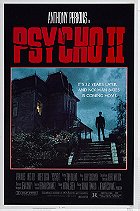
 0 comments,
0 comments, 



